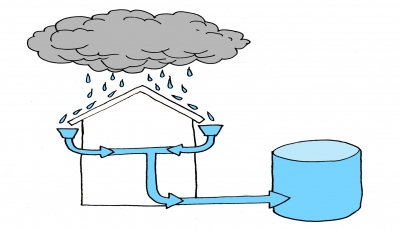The Vital Function of Appropriate Fluid Waste Elimination Strategies in Waste Administration
In the world of waste administration, the relevance of utilizing suitable liquid waste removal methods can not be overemphasized. The elaborate web of interconnected environmental, wellness, and safety factors to consider depends upon the effective management of liquid waste. From protecting our environments against contamination to supporting public health criteria, the proper disposal of liquid waste plays a pivotal duty in preserving a sustainable and healthy environment. This crucial duty prolongs beyond plain waste elimination, impacting a multitude of fields and elements of our daily lives. It is within this structure that the application of sound fluid waste removal strategies stands as a foundation of responsible waste monitoring methods.
Relevance of Appropriate Fluid Waste Removal
Why is proper fluid waste elimination vital in keeping environmental and public health requirements? Appropriate liquid waste removal is vital for guarding the setting and promoting public health standards.
Environmental Advantages of Efficient Methods
Applying reliable fluid waste elimination methods not only safeguards the atmosphere however likewise plays a crucial role in maintaining public health criteria. By making use of correct methods, such as sophisticated filtering systems and responsible disposal approaches, the ecological advantages are considerable. One of the primary benefits is the avoidance of contamination of natural water sources. Inappropriate disposal of fluid waste can cause contaminants seeping right into the soil and eventually getting to groundwater storage tanks, affecting both human wellness and environments.
Furthermore, reliable liquid waste removal methods help alleviate the threat of waterborne diseases. Hazardous chemicals in fluid waste can have detrimental effects on fresh water and aquatic microorganisms, interrupting ecological communities and biodiversity.
Health Ramifications of Inadequate Elimination
The damaging wellness effects connected with poor fluid waste elimination underscore the important relevance of proper disposal methods and effective management practices. Improper removal of liquid waste can result in the contamination of water sources, positioning severe health and wellness dangers to both people and wildlife. When liquid waste containing hazardous chemicals, pathogens, or other pollutants is not properly removed and treated, it can permeate into groundwater, rivers, and seas, endangering the top quality of alcohol consumption water and water environments.
Exposure to contaminated water due to poor fluid waste elimination can lead to different health problems, consisting of stomach health problems, skin infections, breathing issues, and a lot more extreme problems such as organ damage or neurological conditions. Additionally, the launch of unattended fluid waste into the environment can add to the spread of waterborne illness, creating public wellness dilemmas that require substantial sources to attend to.
As a result, executing correct liquid waste elimination methods is necessary to safeguarding public health and wellness and maintaining the honesty of environments. Reclaim Waste liquid waste removal. By prioritizing efficient waste management methods, we can mitigate the health and wellness risks connected with insufficient liquid waste elimination and advertise a healthier setting for all
Role in Stopping Water Contamination
Effective fluid waste removal strategies play a critical function in preventing water contamination and guarding public health. Inappropriate disposal of liquid waste, such as unattended sewer or industrial effluents, can bring about the contamination of water sources, posturing severe risks to human health and wellness and the environment. When liquid waste is not adequately eliminated and treated, harmful compounds can seep into groundwater, rivers, and seas, contaminating alcohol consumption water products and water ecological communities.
Polluted water can lug a series of toxins, including microorganisms, hefty steels, and chemicals, that have the potential to trigger waterborne conditions, ecological damages, and long-term health and wellness results in human beings and wildlife. Appropriate fluid waste elimination techniques, such as wastewater treatment plants, go to these guys septic systems, and industrial effluent treatment facilities, are necessary for getting rid of or neutralizing dangerous impurities prior to they can get in water bodies.
Guaranteeing Safe Disposal Practices
Making certain proper disposal practices for liquid waste is vital to shield water resources and public health from contamination risks. Safe disposal practices involve sticking to guidelines and regulations set forth by environmental agencies to reduce the effect of liquid waste on the atmosphere. Correct control and storage space of fluid waste are critical to protect against leakages or spills that can permeate right into the dirt and pollute groundwater resources. Applying reliable therapy approaches, such as filtering or chemical procedures, before disposal can also considerably decrease the hazardous impacts of liquid waste on the environment.

Final Thought
Finally, proper fluid waste elimination pop over to this site methods play a vital function in waste management by preventing ecological contamination and guarding public health and wellness. Efficient removal approaches make certain the risk-free disposal of liquid waste, minimizing the adverse effect on communities and water resources. It is imperative for individuals and sectors to embrace liable methods to reduce the harmful results of improper fluid waste disposal.
In the world of waste monitoring, the relevance of employing ideal liquid waste elimination techniques can not be overemphasized. It is within this framework that the execution of sound fluid waste removal strategies stands as a foundation of liable waste administration techniques.

Comments on “Exactly how to Select the Best Reclaim Waste Melbourne Service for Your Liquid Waste Needs”